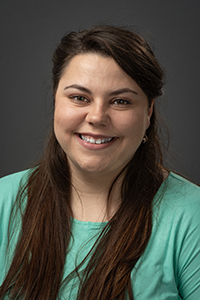The Respiratory Therapy curriculum prepares individuals to function as respiratory therapists. In these roles, individuals perform diagnostic testing, treatments, and management of patients with heart and lung diseases. Students will master skills in patient assessment and treatment of cardiopulmonary diseases. These skills include life support, monitoring, drug administration, and treatment of patients of all ages in a variety of settings.
Graduates of accredited programs may be eligible to take entry-level examinations from the National Board of Respiratory Care. Respiratory Therapy graduates may also take the Advanced Practitioner examination. Graduates may be employed in hospitals, clinics, nursing homes, education, industry, and home care.
The AAS Degree Respiratory Therapy program at Wilkes Community College located in Wilkesboro, NC, program number 200544, is accredited by the Commission on Accreditation for Respiratory Care (COARC).
Commission on Accreditation for Respiratory Care
264 Precision Blvd.
Telford, TN 37690
(817) 283-2835
CoARC accredits respiratory therapy education programs in the United States. To achieve this end, it utilizes an ‘outcomes based’ process. Programmatic outcomes are performance indicators that reflect the extent to which the educational goals of the program are achieved and by which program effectiveness is documented.
Learning Outcomes
- Utilize critical thinking, diagnostic, and therapeutic skills to accurately assess the patient’s condition, develop a plan of care, and modify the treatment plan as needed so that safe and effective respiratory care is given.
- Document completely and accurately using proper grammar and medical terminology.
- Exhibit ethical, caring, and culturally competent behaviors toward patients and their family members.
- Utilize professional communication and behavior when dealing with patients, their families, and other members of the healthcare team.
Contact Information
Pathways
This part of the website is currently undergoing maintenance. Please refer to the
WCC Catalog for program information.
Technical Standards
The Respiratory Therapy program technical standards have been developed to inform students of the nonacademic essential functions of the program and profession. Examples are not all inclusive.
| Standard |
Essential Function |
Examples |
Communication
Oral / Written |
- Skills sufficient to communicate information and ideas so others will understand
- Skills sufficient to interact with individuals, families, and groups from a variety of social, emotional, cultural, and intellectual backgrounds
|
- Document relevant patient information (manual or via computer) using correct terminology and spelling
- Interpret doctor’s orders
- Record patient responses to treatments
- Establish rapport with patients, families, and other health care providers
|
| Mobility / Motor Skills |
- Motor skills sufficient to move the hands and use hands to grasp or manipulate objects
- Mobility sufficient to perform physical activities that require considerable use of arms and legs and moving the whole body
- Mobility sufficient to perform physical activities that require dexterity and flexibility to move body in a variety of positions
|
- Utilize instruments with patients
- Move around in patients’ rooms and treatment areas
- Maneuver in confined spaces
- Physical activities may include:
- Bending
- Stooping
- Lifting
- Reaching
|
| Physical Strength and Stamina |
- Ability to stand for extended periods of time
- Ability sufficient to lift and carry up to 30 pounds
|
- Stand and walk up to 12-hour shifts
- Lift and/or maneuver patients
- Lift and move equipment such as gas cylinders
|
Sensory
- Sight
- Sound
- Taste
- Touch
- Smell
|
- Visual skills sufficient to see details at close range and manipulate equipment
- Listening skills sufficient to communicate with others
- Identify various sounds
- Ability to touch and locate anatomy on patients to perform physical assessments
- Ability to tolerate various odors
|
- Observe patient responses to treatment
- Hear equipment/emergency alarms, call bell, or call for help
- Listen to heart, lung, and blood pressure sounds
- Feel for pulse
- Work with patients with poor hygiene
|
| Environmental / Occupational Exposure |
- Frequent exposure to communicable and infectious diseases, secretions, blood, and bodily fluids
- Exposure to environmental hazards
- Ability to work under high stress situations and respond promptly
|
- Possible exposure to HIV, hepatitis, etc.
- Exposure to X-ray radiation, medicinal preparations, latex, and toxic substances
- Respond appropriately in emergency to maintain patient safety and care
|
| Field or Industry Professional Standards |
- Criminal background check
- CPR certification
|
|
Disability Services Statement
Wilkes Community College is an ADA compliant institution. WCC does not discriminate based on a disability in the admissions process or in access to its programs, services, and/or activities for qualified individuals who meet eligibility requirements. WCC will provide reasonable accommodations for individuals with documented disabilities who are eligible to receive or participate in college programs, services, and/or activities. If a student believes that he/she cannot meet one or more of a program’s essential functions without accommodations, the student is encouraged to disclose this to Disability Services as soon as possible.
Associate to Bachelor Agreements
An Associate to Bachelor agreement is an opportunity for students to complete their Associate's degree at Wilkes Community College and then transfer into a specified program at a partnering four-year institution for their Bachelor's degree. Wilkes Community College has the following Associate to Bachelor agreements for our Respiratory Therapy graduates:

